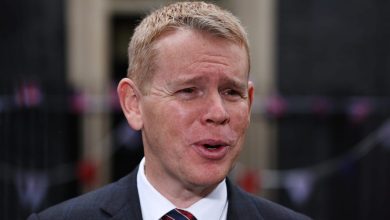Oleg Tinkov, Russian Oligarch, No Longer Subject to UK Sanctions

In a surprising turn of events, the United Kingdom has decided to lift sanctions against Russian Oligarch Oleg Tinkov. The decision comes after a detailed review of his case and an assessment of the impact of the sanctions on both Tinkov and the UK economy.
Oleg Tinkov, the founder of the Tinkoff Bank, was sanctioned by the UK in 2020 as part of a wider crackdown on Russian individuals and entities believed to be involved in illegal activities or human rights abuses. The move was seen as a strong statement against what the UK government called “Russian aggression and meddling in global affairs.”
However, the recent decision to lift sanctions against Tinkov has raised eyebrows and sparked a debate about the effectiveness and consistency of the UK’s sanctions policies. Critics argue that Tinkov’s close ties to the Kremlin and his alleged involvement in illicit activities should have been enough to keep him on the sanctions list.
Supporters of the decision, on the other hand, point to several factors that influenced the UK government’s reconsideration. Firstly, Tinkov’s willingness to cooperate with UK authorities during the investigation and subsequent legal proceedings played a significant role. This cooperation included the provision of important financial information and testimony, which reportedly helped UK authorities in their fight against international money laundering.
Furthermore, Tinkov’s economic impact in the UK cannot be ignored. His businesses, including Tinkoff Bank, have contributed significantly to the British economy, providing employment opportunities and attracting investments. The review of the sanctions took into account the potential negative repercussions on the UK economy and the interests of British citizens, and ultimately tipped the scales in Tinkov’s favor.
This decision, however, does not come without criticism. Skeptics argue that lifting sanctions against Tinkov sets a bad precedent, sending a mixed message about the UK’s commitment to combating corruption and human rights abuses. They believe that it sends the wrong signal to other potential offenders and may undermine efforts to hold individuals accountable for their actions.
The UK government, for its part, maintains that the decision to lift sanctions against Tinkov is appropriate, given the unique circumstances of the case. They argue that it demonstrates the flexibility of the UK’s sanctions regime and its commitment to making rational and balanced decisions based on careful assessment.
As the UK lifts sanctions against Oleg Tinkov, it raises important questions about the efficacy and consistency of such measures. The decision showcases the complex nature of imposing sanctions and the need for continuous review and adjustment. Ultimately, it remains to be seen whether this move will be viewed as a prudent decision or a missed opportunity to hold a prominent Russian figure accountable for his alleged misdeeds.



